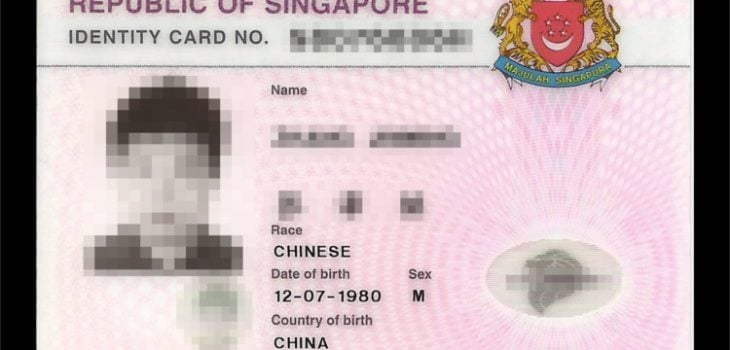It almost feels like the innocent comment I made about Goodyfeed becoming a scam report newsfeed a few articles ago is coming to bite me back in the fingers, quite literally, because there’s yet another kind of scam circulating on the social media platform.
Readers: Seriously? Another one?
Yah, but it’s getting more dangerous, because this group of criminals are offering to sell forged Singapore passports and identity cards.
The Illegal Activities Drifting Around Telegram
According to official sources, the anonymous administrators for the Telegram chat group offering such services have been around since 24 February 2022, and they have continued to remain active as of last Friday (18 Mar).
The infiltrator of this fraud isn’t some curious netizen like Janice Sia, who stepped into the lion’s den despite knowing the e-commerce company was a scam, but Straits Times reporters instead.
The unnamed reporter pretended to be an interested buyer, and learned that forged NRICs were being sold at prices ranging from $200 to $450.
While the seller refused to provide a sample, they reasoned that the cost difference came down to whether the card was “registered”, which meant whether the personal particulars on the card could be found in the national records.
The Importance of Our NRICs
Very much like social security numbers in other countries, our National Registration identity Card (NRIC) is extremely important because it allows us to open bank accounts, make loans, and register for mobile numbers.

Fake identification documents are appealing to anyone who wants to avoid the attention of official authorities.
Singaporean identification documents and passports in particular, are especially powerful, because it allows a holder to travel without the need for a visa to 192 destinations.
According to the worldwide index which was gathered by the global citizenship and residence advisory firm Henley and Partners, Singapore and Japan hold the most powerful passports in the world in 2022.
Is the ICA Aware of the Threat?
Very much so, yes.
In response to The Straits’ Times enquiries, the Immigration and Checkpoint Authority (ICA) stated that they are aware of Telegram groups (plural) promoting the sales of fake identification cards.
It sounds like they have insiders in those groups, that’s what it is.
It’s honestly hilarious to image a wooden-faced ICA officer nonchalantly baiting a forger on the computer or the phone, and feigning interest in something that’s obviously illegal.
But if the method works, don’t fix what’s not broken, I suppose.
The ICA adds, “We are monitoring these platforms and will follow up on any leads. The ICA will also take strong enforcement actions against offenders.”
Naturally, the notion of forged documents does raise alarm bells, but the ICA reassures the public of its commitment to its mission of administering immigration and registration services.
Among many other responsibilities, it includes guaranteeing the overall security of its operational systems, and having multiple measures that function as check and balances to fend against criminal and cyber-security threats.
Join our Telegram channel for more entertaining and informative articles at https://t.me/goodyfeedsg or download the Goody Feed app here: https://goodyfeed.com/app/
Is It Easy to Forge an NRIC?
The answer is a straight-forward “No”, thankfully.
According to Criminal Lawyer Cory Wong of Invictus Law Corporation, the most that forgers can manage is using card printing machines to create fake NRICs using another person’s personal details, while inputting the buyer’s image instead.
If you’ve ever paid close attention to your own NRICs, there are actually quite a few features that are difficult for forgers to replicate:

For instance, the words “Republic of Singapore” printed on NRICs that are issued after 2 May 2013, shift in colour when they are viewed in different angles.
In the oval feature where the identification number and merlion overlap, lenticular printing is used, so your identification number disappears whenever its tilted.
Another important feature that is hard to replicate or guess, is the “Date of Issue” on our NRICs, because you can never be certain if someone has ever replaced their cards, or when they got them in the first place.
The “NRIC Forgery” Could Be a Phishing Scam
Ironically enough, the sale of fake identification information could be a phishing scam to get your personal information as well.
In the course of getting the forged documents, there’s a risk where you’re providing your own personal data, such as your own full name and identification number.
Don’t you think it’s kind of funny that they’re boasting that they can create fake NRICs, and yet they’re asking for your NRIC?
Therefore, always be cautious of who you’re giving personal information to.
Or better yet, just don’t do it.
Because once you’ve given out your personal data, it could be sold on the dark web for thousands of dollars; that’s how valuable your own information is, and how lucrative the scamming business can be.
To give a fair warning, those found in possession of a forged NRIC card alone can face a fine up to $10,000, a jail term of 10 years, or both.
Those found guilty of forgery can be jailed up to four years, fined, or both.
Read Also:
- Woman Joins ‘Online Job Scam’ to Show Others How It Works From the Inside
- S’pore is Ranked 27th in the Latest World Happiness Report 2022
- Woman Claims Delivery Rider Uses Bare Hands to Scoop Spilt Food Back to Container
- S’pore Now Has Over 1 Million COVID-19 Reported Cases, Which Means About 1 Out of 5 of Us Were Infected
Featured Image: Shutterstock / Alii Sher
Would you be jailed for being half-naked in public? Well, the answer will shock you. Seriously. Watch this to the end and you'll understand:



